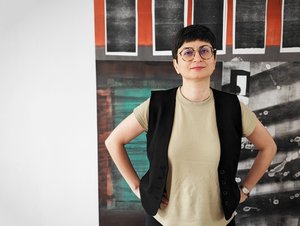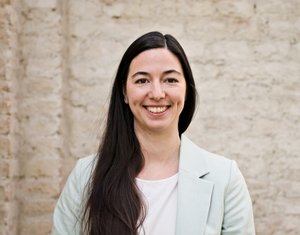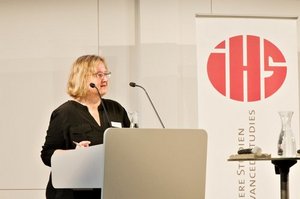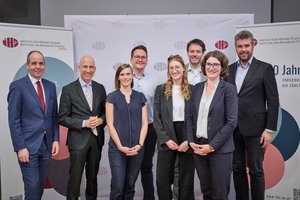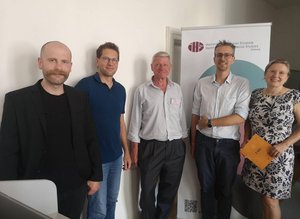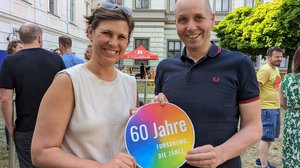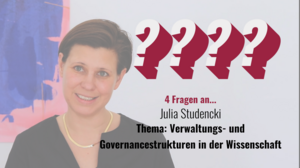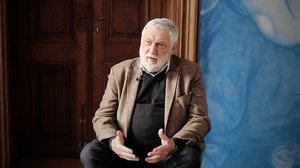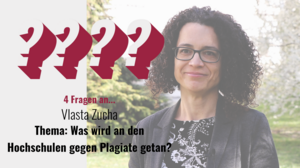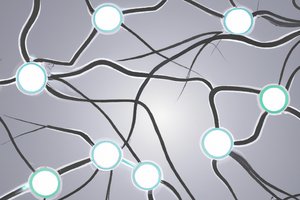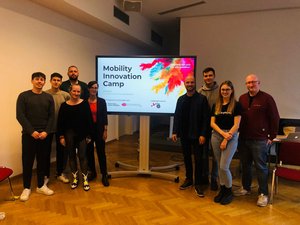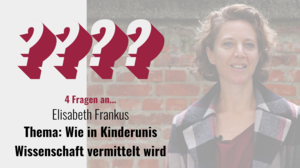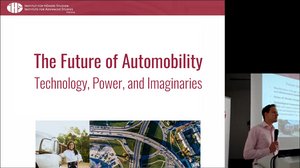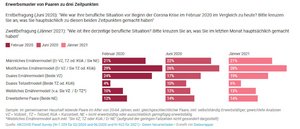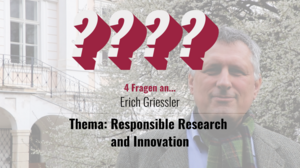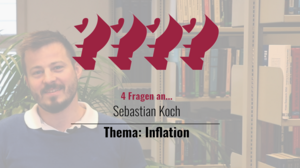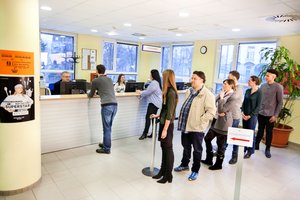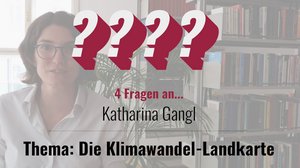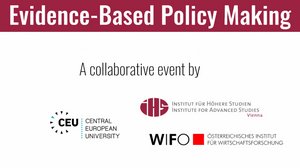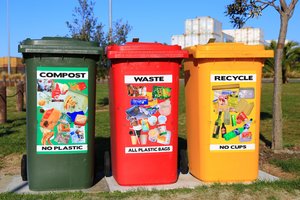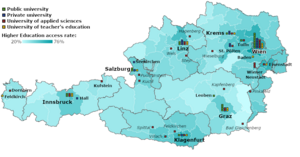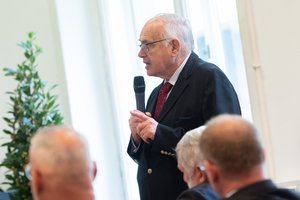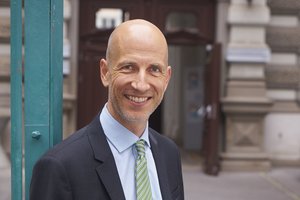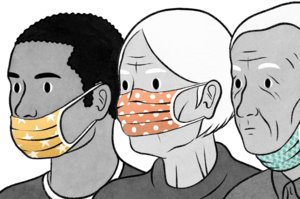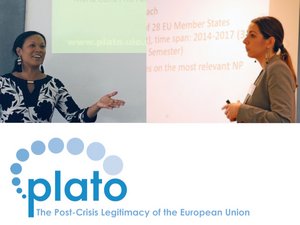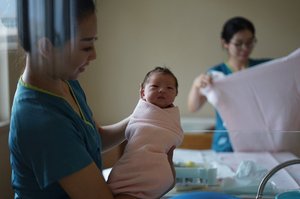
Figure of the Month: 20
Christian Kimmich, IHS Expert for energy and environmental policy, talks in the current IHS News in March about the economic potential of the energy transition.
Word of the Month: Ability to compromise
Given the political and economic situation, a strong commitment to democratic compromise is essential, Holger Bonin writes in the February edition of IHS News.
Spotlight: Masoud Abdollahi Mobarakeh
Masoud Abdollahi Mobarakeh works as an economist at IHS and has been part of the institute since 2022.
Figure of the month: 69
Since 2019, the student employment rate has risen from 65% to 69%, with students now working an average of 21 hours per week.
Figure of the month: 37
The energy crisis has driven inflation in Austria to record levels. IHS analysis reveal that, without government price interventions, electricity costs for an average Austrian household would have been significantly higher.
Spotlight: David Rösler
David Rösler is a health economist and has been at IHS since 2021. Most recently he worked on the Horizon2020 project SimCor.
XR in ergotherapy for an ecological handprint
According to the World Health Organisation, the climate crisis is the greatest threat to global health and requires changes at a social, societal and individual level (WHO 2021). The healthcare sector has great potential to initiate behavioural changes that promote individual and social resilience. Since 2018, occupational therapists in particular have been called upon to actively participate in this transformation - but there is a lack of clarity about how this can be implemented in practice.
Spotlight: Claudia Royc
Claudia Royc is an event manager at the IHS and has been part of the institute since 2017.
Pride Month? A Commitment to Diversity and Equality, Not Just in June
On May 17, 2024, the Institute for Advanced Studies (IHS) raised the Progress Flag in recognition of the International Day Against Homophobia, Biphobia, Intersexism, and Transphobia (IDAHOBIT). By doing so, the institute made a visible statement of solidarity for the upcoming Pride Month. However, IHS's commitment to an inclusive and respectful coexistence extends beyond just June; it is deeply embedded in the organization's culture.
Spotlight: Elaheh Mohammadi
Elaheh Mohammadi worked as a Marie Curie Sklodowska Curie Fellow at IHS from 2022 to 2024.
Spotlight: Sylvia Mandl
Sylvia Mandl as been working at the IHS and in the Higher Education Research Group since 2019. Among other things, she is responsible for the international higher education research project EUROSTUDENT.
Effects of heat on labour productivity in Austria
The year 2024 was heralded by the warmest February in Austria since measurements began 257 years ago. Countries such as Spain, Portugal and Greece in particular are having to prepare for ever higher temperatures and far-reaching consequences for society such as forest fires, water shortages and crop failures, but the consequences of the climate crisis are already being felt in Austria too and will become even more acute in the coming decades.
Spotlight: Angela Wroblewski
Angela Wroblewski is working at the Institute for Advanced Studies since 1996. She conducts research on gender equality issues in science and research and is one of the IHS Gender Equality Officers.
Sustainable financial literacy
In order to prevent further global warming and combat the climate crisis, special attention must be paid to environmental sustainability, especially when investing in the financial market.
Spotlight: Shauna Stack
Shauna Stack is a Junior Researcher at IHS and part of the institute since 2020. As a member of the research group Science, Technology and Social Transformation she focuses mainly on the democratization of research and innovation.
From secondary school into the palais
The search for suitable accommodation is often a difficult undertaking, and not just for private individuals. Finding premises that meet the requirements in terms of location, size, accessibility, general condition and, for example, communal and recreational areas can also be an immense challenge for scientific institutes.
Behavioural Insights in Austria and the World
In the light of the IHS anniversary year, the Behavioral Economics Research Group hosted an event on October 2 to shed light on the development of the practical application of findings from the behavioral sciences ("Behavioural Insights") in Austria and internationally.
Pass-throughs for a "monastically exclusive corps." The scholars of the IHS
Author: Andreas Huber, Clelia Castellucci, Thomas König
Review of the history of the postgraduate program and scholars at Institute for Advanced Studies.

Distribution issues in research funding
Author: Thomas König
Summary of the workshop "Research Policy: How to distribute the cake of research funds" that took place on 18.9.2023 at the IHS.
The Panel Discussion "The IHS and the Professionalization of Social Sciences in Austria" in Review
Author: Clelia Castellucci
On the occasion of its 60th anniversary, the IHS hosted a high-level panel discussion with former IHS scholars on July 4. The focus was on the impact of the IHS postgraduate program, which ran from 1965 to 2015/16, on the Austrian academic landscape.
A celebration of family, equality and diversity
The Institute for Advanced Studies (IHS) hosted its first family event for employees on June 2, 2023, which was held in celebration of Pride Month.
Inequality in pictures: Today as then?
Picture contest
IHS Research Group Education and Employment is organising a picture competition on the occasion of the IHS anniversary on the topic of social inequality today and 60 years ago.
Virtual Skills Lab: A Mirror for humans and research
Human vs. machine - these two terms are often portrayed as opponents. But what might collaboration look like in the future? At the book presentation on April 20, 2023, the authors of "Virtual Skills Lab" presented one possibility. Managers can train social skills in a virtual reality simulation.
4 Questions for... Julia Studencki
Topic: Administrative and governance structures in science
In this interview, IHS Secretary General Julia Studencki talks about her first six months at the IHS, the expectations of governance structures in research institutions and the Institute's future plans.
Language: German
Photovoltaic and wind power expansion: Who and how many are needed?
On the road to CO2 neutrality, renewable energies - above all wind and solar power - are among the great sources of hope. Lower Austria is planning to make its contribution to the energy transition with the help of an ambitious expansion of photovoltaics and wind power. The implementation of the expansion plan brings opportunities for the economy and the labor market, but also poses challenges.
Nobel Guests
Scientific networking has always played a central role at the Institute for Advanced Studies over the past 60 years. Among the guests were some who later gained highest international recognition.
ChatGPT – Curse or blessing?
While many non-humans communicate, it is language that characterizes humans. Not anymore. Many herald this as a major achievement. The authors of this blog post are cautious and skeptical. States and supra-national organizations must bring permissionless innovation to an end.
"An important institute"
Franz Fischler has been President of the Institute for Advanced Studies (IHS) since 2015. In this interview he reviews the past years and talks about the importance of the Institute for society.
Language: German
60 years of research that matters – New beginnings and realignment
The second part of the blog post "60 years of IHS" will deal, among other things, with the phase of awakening in the 1990s and the realignment starting in the 2010s.
Language: German
60 years of research that matters
The Institute for Advanced Studies is celebrating its 60th anniversary this year. To mark the occasion, several blog posts will be published this year, dealing with different aspects of the Institute's history. In the first post, Andreas Huber and Thomas König summarize the different periods of the Institute, based on existing literature and their historical research.
Language: German
4 Questions for... Vlasta Zucha
Topic: What are universities doing to prevent plagiarism?
IHS university researcher Vlasta Zucha talks in an interview about a recent study on plagiarism prevention and checking at Austrian colleges and universities.
Language: German
Science and society - an unagitated debate is needed
In the last two years, the relationship between science and society has been the subject of much debate in Austria. This is reflected in the increase in newspaper reports, political statements and announced measures on this topic.
Community Creates Mobility Innovation Camps
How can the mobility revolution be shaped fairly and what skills do start-ups need to meet the challenges of the future? The participants of the "Community Creates Mobility Innovation Camps" asked themselves these and other questions.
Investments in sustainable mobility pay off
Elisabeth Laa and Kerstin Plank discuss in their blog post why investments in sustainable mobility pay off and what concrete starting points there are to do so.
4 Questions for... Elisabeth Frankus
Topic: How science is conveyed in children's universities
In this episode of our series "4 Questions for...", senior researcher Elisabeth Frankus talks about her experience at the children's university in Steyr.
Language: German
What prevents us from saving energy - and how we can do it anyway
The current energy crisis, at the latest, makes it clear to us: we cannot go on doing business as usual. For various reasons, we now want and need to save energy. But why is this so difficult for us?
Higher education courses – Who studies and why?
This blog post is dedicated to the question of who starts programmes of continuing education at Austrian universities and for what reasons. The data basis is a supplementary survey to the Student Social Survey in the summer semester of 2019.
4 Questions for... Kira Abstiens
Topic: How to save energy?
In this episode of our series "4 Questions for...", Kira Abstiens talks about how behavioural science can help save energy.
Language: German
Pandemic on wheels
The European Union and Austria fell in love in tandem with the electrification and automatization of automobility. This is no surprise.
Post-Automobility Futures
The book "Post-Automobility Futures", written by Robert Braun and Richard Randell presents an in-depth phenomenological and deconstructive analysis of the automobility imaginary, which is none other than the mundane automobility reality within which we dwell in everyday life.
Do online surveys produce different results than face-to-face interviews?
in_progress Blogpost
The increasing use of online surveys (CAWI) in social research is a trend that gained momentum in the wake of the COVID-19 pandemic. The shift from face-to-face interviews to online surveys raises the question of mode effects.
Language: German
The employment patterns of couples in the pandemic - little evidence of retraditionalization
in_progress Blogpost
The measures taken to contain the COVID-19 pandemic had a devastating impact on the labor market at the beginning of the crisis. The number of unemployed reached its highest level since 1945 in April 2020.
Language: German
4 Questions for... Erich Griessler
Topic: Responsible Research and Innovation
Erich Griessler, IHS Spokesperson for Science and Ethics and Head of the Research Group for Science, Technology and Social Transformation talks about the topic of Responsible, Research and Innovation in the third episode of our interview series "4 Questions for...".
Language: German
Growing Up Free of Violence and Abuse
Domestic violence is an especially challenging problem for children. A recent IHS project aimed at building up knowledge for practical work with affected children. Also, the social costs of children witnessing violence in their homes as well as the monetary benefits of supporting those children were estimated.
Adult and further education in Austria: An Overview
in_progress Blogpost
Where does the money for adult and continuing education in Austria come from? Who participates in the offers? And how has participation developed in recent years? Answers to these questions are provided by a new study by the Institute for Advanced Studies (IHS) on behalf of the Vienna Chamber of Labour.
Language: German
AI deployment in SMEs and startups
In the course of the Interreg project AI Social Design Thinking Lab (ATCZ271), IHS researchers are investigating possible reasons for the still low use of artificial intelligence (AI) in Viennese SMEs and start-ups.
Language: German
Vehicles of Sovereignty
In recent years, autonomy, resilience and sovereignty have taken centre stage in European policy debates. Policymakers pepper their talks with the words, while think tanks and research facilities try to give them meaning, and flesh them out into policy agendas.
The Contribution of Behavioral Economics to the Solution of the Climate Crisis
Insight Austria Blogpost
The climate crisis is the central challenge of our time. Only by reducing CO2 emissions and other greenhouse gases can global warming be limited. Despite political declarations on the part of the UN, EU or OECD and international agreements such as the Paris Climate Agreement, however, current measures are likely to bring us to a temperature rise of 2.7 degrees Celsius instead of the maximum sustainable 1.5 degrees Celsius by the end of the century. So much more needs to be done.
Language: German
4 Questions for... Sebastian Koch
Topic: Inflation
IHS economist Sebastian Koch talks about the topic of inflation in the second installment of our interview series "4 Questions for...".
Language: German

Fiscal policies in Austria during the COVID-19 pandemic
When the new corona virus SARS-CoV-2 began to spread rapidly in Austria, the government reacted with the first lockdown, beginning on March 16th, 2020. This blog posts examines the overall macroeconomic impacts of the measures taken to counteract the consequences of the pandemic.
Language: English
Looking for a partner on the Internet
Insight Austria Blogpost
What is important about a partner? Behavioral economists also address this question - with some astonishing findings.
Language: German
Registry-based pathways of employment in the COVID-19 pandemic
in_progress Blogpost
The COVID-19 pandemic and the measures taken to contain it have caused significant dislocation in labor markets worldwide. Unlike the financial and economic crisis about 10 years ago, this time almost all economic sectors were affected by the decline in employment. However, the instrument of short-time work has also helped to minimise job losses in this crisis.
Language: German
Reconciling family and work in the COVID-19 pandemic
in_progress Blogpost
Already at the beginning of the pandemic, problems of reconciling family and work were intensively pointed out, especially in connection with school closures or quarantine regulations in the education sector, limited care options for small and school children (e.g. partially closed kindergartens and after-school care centres, protection of grandparents and thus elimination of informal care), but also bottlenecks in the care and nursing of older family members.
Language: German
Digital Nudging - How to make better decisions digitally
Insight Austria Blogpost
Home office, social media, online dating, ... Digitalization is advancing and reaching all areas of our lives. We are constantly making decisions in digital environments. This is where Digital Nudging comes into play. In this article we introduce the concept!
Language: German
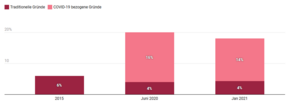
Limited Health Care in Times of Pandemic
in_progress Blogpost
Have medical treatments and examinations had to be restricted since March 2020? Results from the AK-COVID survey.
Language: German
4 Questions for... Katharina Gangl
Topic: The Climate Change Map
In the first episode of our series "4 Questions for..." we talk to Katharina Gangl, IHS spokesperson for behavioral economics, about the climate change map.
Language: German
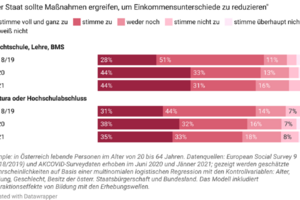
Welfare State and Financial Redistribution Gain in Importance
in_progress Blogpost
What is the role of the welfare state in the Corona crisis? Have people's attitudes toward it changed in the course of the pandemic? A recent study shows that the welfare state has become more important in the perception of many people.
Language: German
Experiments and Behavioral Science
Insight Austria Blogpost
When you think of experiments, you quickly have the image in your head of ingenious scientists in white coats mixing colourful substances. But experiments can be used in a variety of areas and do not only take place in the chemistry lab.
Language: German
A Queer Youth Centre for Vienna?
Is there a need for a designated center for queer youth in Vienna? IHS is currently addressing this question in a research project for the City of Vienna.
Language: German
Nudging as a Means to Reduce Fake News
Insight Austria Blogpost
Especially in times of COVID, a lot of fake news is circulating. Why does the belief in conspiracy theories persist so much? How do people decide whether or not to share fake news on social networks? In this article, we will get to the bottom of these questions and show how you can reduce the sharing of fake news with a simple nudge.
Language: German
Evidence-based Policy Making
The Corona Pandemic has highlighted the importance of scientific research in the social sciences and economics. Our lives radically changed due to the political measures introduced to curb the epidemic, and to know which measures worked (and which did not), scientific advice was instrumental. This was the background for the conference on evidence-based policy making held on last Thursday, on 27 May 2021, jointly organized by IHS, WIFO and CEU.
Who is Paying for a Carbon Tax?
EU member states want to reduce their CO2 emissions by 55% by 2030, compared to 1990 levels. A carbon tax can serve as an instrument to achieve this goal. But caution is called for, because Austrian households could be burdened particularly heavily compared to the economy. This is already the case with existing energy and transport taxes.
Language: German
An Online Experiment on Waste Separation
Insight Austria Blogpost
In Austria, a large majority of people say they separate their waste. But do they separate correctly? Insight Austria has set itself the goal of designing information stickers on waste separation more efficently. To find out what works best, they conducted a small online experiment.
Language: German
Spatial inequalities and the price of a short commute among students in Austria
Young study aspirants who don’t grow up close to a higher education institution often face a tough choice: Commuting to the nearest institution from the parental home, or moving close to an institution of choice? The former means considerable commuting times and being restricted to choose from a possibly narrow range of study programmes offered there. The latter requires more effort and resources, e.g. to find and afford some sort of housing near the institution.
Long-time IHS President Heinrich Neisser Turns 85
On October 11, 1983, Heinrich Neisser, then a 47-year-old member of the Austrian Parliament, was elected to the Board of Trustees of IHS at a general meeting. The doctor of law, who had also studied national economics and sociology, could already look back on an impressive career.
Language: German
Women at IHS
A previous blog post dealt with the collective biography of the directors of IHS. So far, all of them have been men - however, women have been instrumental in shaping the history of the Institute.
Language: German
Directors of IHS: A Collective Portrait
Martin Kocher's appointment as Minister of Labor on January 11 of this year not only came as a surprise, it was a premiere for the IHS: for the first time in the institute's nearly 60-year history, its director moved straight into politics.
Language: German
Who Complies to the Corona-Lockdown-Rules?
Insight Austria Blogpost
The behavioral economists Holger A. Rau and Stephan Müller from the University of Göttingen recently published a study on "Preferences and Compliance in the Societal Stress Test of the COVID-19 Crisis" in the "Journal of Public Economics". This blog post explores implications of the study for policy and society.
Language: German
What can Behavioral Science contribute to Better Acceptance of COVID-19 Vaccination?
Insight Austria Blogpost
The vaccination against Covid-19 has arrived. Many are relieved, but a certain skepticism is also noticeable. What if not enough people are willing to vaccinate? This article looks at this question from a behavioral science perspective and discusses measures that could contribute to a higher willingness to vaccinate.
Language: German
Addressing Legitimacy Challenges for the European Union
The financial crisis 2008 posed a huge challenge to the European Union, its consequences being still noticeable today. The legitimacy of the EU’s responses to that crises is at the core of a research initiative that the IHS was a part of for the last three years.
Combating Domestic Food Waste
Insight Austria Blogpost
"Eat up, or we'll have to throw it away" are words my grandmother used to say to my ears. Unlike my grandmother, however, I grew up in an affluent society and have a less careful approach to food. I am not alone in this: Verma, de Vreede, Achterbosch & Rutten (2020) estimate that food waste worldwide averages 527 wasted kilocalories per person per day.
Language: German

Covid-19, Distance Learning and Social Inequality
in_progress Blogpost
In Austria, school closures during the lockdown in spring 2020 affected around 1.1 million pupils. The schools were still open to pupils in which families could not provide adequate care. However, this was conceived as an absolute exception and remained so. The lockdown thus brought about a total shift of the education system towards distance learning and distance education, largely supported by communication via digital media.
Language: German
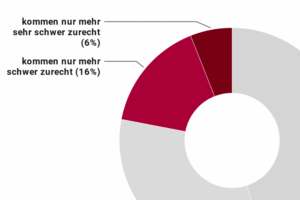
Economic Consequences of the Pandemic on the Situation of Families
in_progress Blogpost
In early summer 2020, about 30% of households already had to cope with lower income due to COVID-19. This is shown by the AKCOVID survey, in which 2,000 persons between 20 and 64 years of age living in Austria were interviewed.
Language: German
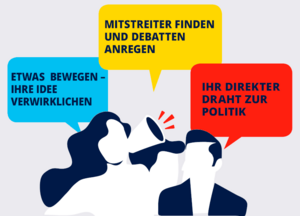
The European Citizens' Initiative
The European Citizens' Initiative (ECI) is an important first step in diversifying the range of stakeholders involved in EU policy making. However, room for improvement remains. The name of the ECI implies involvement of all citizens living in the EU but it is rather a tool for organised civil society with transnational networks. Improving internet infrastructures and paying attention to the involvement of marginalised, less well-educated communities will enable better access for all European citizens to participate in the ECI. What is more, allowing for more controversial initiatives and a greater political commitment by the Commission will make the ECI a stronger tool in the long-run.
Science, Open Up!
In September 2020 the touring exhibition "Open UP!" had its stop at IHS. It focused on the Open Science movement and how it is changing daily research work, especially in the economic and social sciences. In this article, Thomas König, Elisabeth Frankus and Elisabet Torggler reflect on some of the essential aspects of Open Science.
Language: German
Mobility as a Commons
Understanding mobility as a commons aims to provide an alternative perspective on the management and development of mobility for innovation, policy and society. Developments in this area - from walking to data mobility and logistics - should be guided by the need to provide fair access and to add value to society.
Language: German
Mobilizing Voters
Insight Austria Blogpost
A high voter turnout is fundamental as a central instrument of democratic decision-making and as a cornerstone of a democratic society. Clara Zwettler deals with the question of how to increase voter turnout in her blog post for the Insight Austria Blog.
Language: German

Engagement Goes Virtual
Getting people engaged in a workshop is always a challenge. Doing it virtually can be even tougher. The following steps are designed to help create more inclusive online experiences – for yourself as well as your participants.
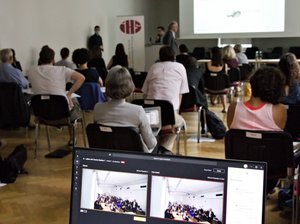
Review: Living with Corona
The symposium "Living with Corona" in early July highlighted current social science research on the pandemic in various areas of life. In this blog post Thomas König reflects on how the symposium came about and what we can take away from it.
Language: German

What we know, what we don't know
The COVID-19 pandemic and the restriction to curb its impact have stimulated lots of research activities. The Symposium "Leben mit Corona" ("Living with Corona) aims at bringing results from ongoing research in different areas of social life together and thereby hopes to initiate more research. This blogpost reflects on the ambitions of the Symposium.
Language: German
Back to the future – The risk of Corona manifesting old role models
Is the Corona pandemic leading to a retraditionalization of role models? Prelimiinary data suggest that this is the case.
Language: German
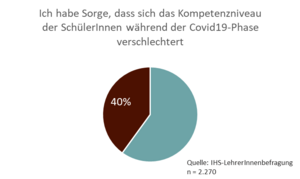
COVID-19 Teacher Survey - Preliminary Results
In a WWTF-funded research project, the teaching and learning performance as well as the support provided by the home environment during the COVID-19 crisis is being surveyed. The preliminary results show: There is great concern about a decline in competence during school closures, especially with regard to already disadvantaged pupils.
Language: German

Reduction of Corporate Income Tax
The reduction in the effective corporate income tax burden can be achieved by reducing the tax base or lowering the corporation tax rate. An IHS-analysis shows that measures that target the tax base and provide direct tax relief for investments are more cost-effective than a general reduction of the corporate income tax rate.
Language: German

Democracy and the Pandemic
The COVID-19 pandemic has already and will result in massive social and economic costs. Within a short time span, whole societies and economies were put under almost complete lockdown, the world almost literally came to a standstill. But does the pandemic also threaten our democracies? This blogpost argues that, in order to cope with the pandemic, our democratic institutions will be tested in three very different ways.

COVID-19 Future Operations Clearing Board
Scientific knowlegde is the bedrock to get us out of the Corona-crisis, and science advice a crucial mean to turn that knowledge in informed decisions. Austria is still behind other countries in that regard, but a new instrument located at the Austrian chancellery offers a new approach, write Martin Kocher and Thomas König.
Language: German

Sustainable Work? Precisely Because of COVID-19!
Even if the pandemic and the shutdown are not yet over, it is already time to start thinking about the future of a sustainable working society. Climate change, digitalisation and growing social inequality force us to. We cannot afford to postpone upcoming debates for much longer.
Language: German

Why Masks?
It is one of the most remarkable (and visible) changes of behavior in our daily lives: we're all wearing masks now. This collective decision is the right one to take and part of our ability to learn and adapt in order to stem the challenges that come with the current pandemic of COVID-19.
Language: German

Closed Schools, Home Schooling, and Potential Consequences
With COVID-19, Austrian schools were all but closed, classes take place remotely and via home schooling. What does that mean for children and families?
Language: German
The Need for Midwifes
This blog article deals with current and future midwifery capacities in the so-called Versorgungszone Ost (Vienna, Lower Austria, Northern and Central Burgenland).
Language: German
After the Pandemic
With the current coronavirus pandemic, curfews and closed borders are becoming the new normality, people are wearing masks, and the global economy is heading towards a recession. As important as the measures are, we must be prepared for the challenges that the post-corona world will bring.

Understanding the Coronavirus Case Numbers
On 16 March 2020, the German government took drastic measures to combat the spread of the novel coronavirus SARS-CoV-2. These measures are designed to minimize human contact with each other and thus contain the spread. The absolute number of cases seems to contradict this to some extent: On Friday, March 13, there were only 504 cases? Even on the third day of the ordinances of the Ministry of Social Affairs on the COVID-19 Act, there were only 1,471. So are the measures excessive?
Language: German

First assessment of the economic impact of the Coronavirus in China
The coronavirus is potentially to become a pandemia, media outlets claim. This blog entry provides an early assessment of the societal and economic impact of the outbreak, dating early February. For an updated analysis, see the Policy Brief from 27 February (in German).

Critical Automobility Studies
IHS research group Techno-Science and Societal Transformation is launching a Critical Automobility Studies Lab, inviting and engaging researchers in various areas of mobility to focus on critical automobility studies. The lab kicks off with a launching event that offers presentations and discussions as well as networking opportunities for everyone interested.
Protecting the environment is the responsibility of us all
Insight Austria Blogpost
When it comes to protecting the environment, it is not only industry that is called upon. In fact, individual behaviour is responsible for 32 - 41% of total carbon dioxide emissions. This means that by systematically changing the behaviour of people themselves, the environment could be effectively conserved.
Language: German

Europe´s Competitiveness and the Rise of China
This year’s EconPol Europe Conference takes place from November 7-8 in Brussels and examines Europe´s Competitiveness and the Rise of China. The annual conference was established in 2017 and brings together economists, politicians and stakeholders from civil society from all over Europe.
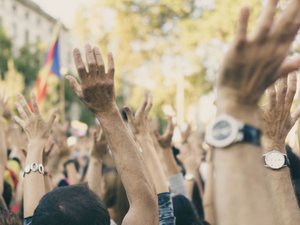
From Party State to Movement Society?
Austria is a country with strong parties and associations. Political participation happens first and foremost through party-dominated elections - forms of political protests are rare. Is this image of the country still accurate?
Language: German

National Lack of Skilled Labor
A shortage of skilled labour occurs when there is a higher demand for labour than the supply of labour in an area or occupation that requires technical training or qualification, i.e. when the vacancies cannot be filled.
Language: German

Do we Need a Reorientation for the Innovation Imaginary?
Public sector innovation is widely seen as a key for "doing things better". However, innovation per se will not necessarily lead to "the better" nor define what "the better" actually is.
Post originally published at OECD Observatory of Public Sector Innovation

Educational Poverty - Causes and Solutions
Education Poverty is noticeable in Austria and becoming a substantial problem, especially in certain population groups. What are the causes of the uneven distribution and what possible solutions are there?
Language: German

Educational Poverty - An Underrated Issue
Fighting Educational Poverty is one of the strategic goals of Europe 2020. In Austria the problem is bigger than it appears at first glance.
Language: German

Industry 4.0 and Digitalisation - Scenarios for the Role of Education
Technological change, especially the disruptive process of digitalisation has allocated a new role to the educational system. Over the past centuries it was designed to prepare the youth for the existing society - today it is supposed to prepare them for a future society that is yet unknown to all those involved.
Language: German

The Climate Crisis is a Social Crisis
The threat of climate change has been hanging over us for some time; however, the 2018 UN report suggests that action is urgently needed to avert disaster. The latest scientific analysis gives us just twelve years to limit global warming to 1.5 degree Celsius above pre-industrial levels by 2100. Unless we slow that rate, no one will be safe from the consequences of climate change.

Measuring Europe - The European Social Survey
The European Social Survey (ESS) is an academically driven cross-national survey that has been conducted across Europe since 2001. The survey measures the attitudes, beliefs and behaviour patterns of diverse populations in more than thirty nations.
Language: German
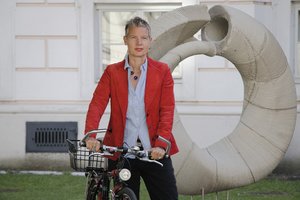
Comprehensive Sustainability Discourse
The term sustainable development has been around for 35 years - but outside of the debate not much else has happened since. Events like the "Growth in Transition"-Conference aim to foster the discourse.
Language: German
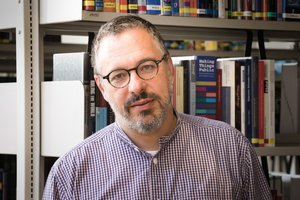
RRI on the Line
For almost 20 years now, the idea of Responsible Research and Innovation (RRI) has been an emerging priority of the European Research Arena. The new proposal for the budget framework that will follow Horizon2020 cuts the funds for specific RRI programs like NewHoRRIzon. Has the concept outlived itself?









